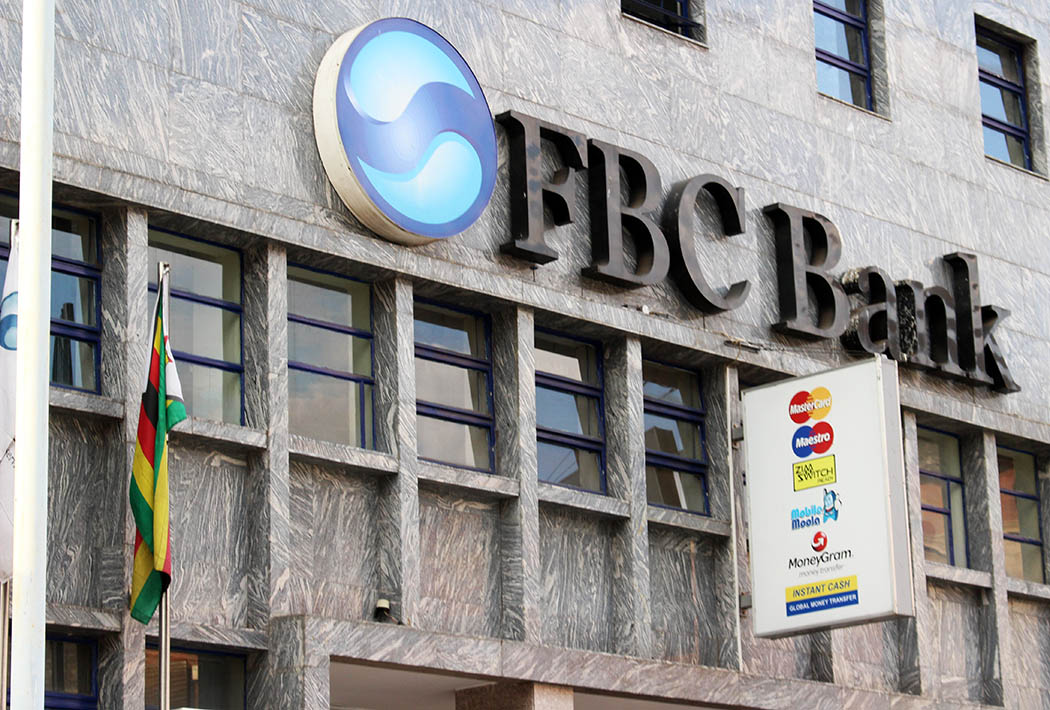Macro-economic instability unsettles FBC
FINANCIAL services concern FBC Holdings Limited reported a profit after tax of $25,4 billion in the first quarter of this year after keeping an eagle’s eye on its spending.
In the period under review, the company’s cost-to-income ratio stood at 41%, indicating healthy spending.
Total income stood at $49 billion for the quarter, while the group’s total assets were recorded at $495,4 billion with underlying shareholder funds of $90,5 billion and a return on equity of 28%.
The trading update was in historical terms due to the unavailability of relevant consumer price indices which facilitate reporting in inflation-adjusted terms.
“Locally, currency instability coupled with other macro-economic risks, is posing a major threat to business viability and prospects,” group secretary Tichaona Mabeza said in a first quarter trading update.
The country has adopted a blended consumer price index in line with the general transaction patterns and currency of trade statistics. The United States dollar-based transactions reportedly now account for more than 70% of transactions across the country, indicating a marked decline in the use of the local currency.
Year-on-year blended inflation declined from 101,5% in January 2023 to 75,2% in April 2023.
In the first quarter, the central bank reduced the bank policy rate from 150% to 140% per annum and reviewed the medium-term bank accommodation facility for productive sectors from 75% to 70% per annum.
It is anticipated that the reduction of interest rates will stimulate demand for credit and promote production. In addition, the central bank also recently introduced gold-backed digital currency that will be used as legal tender and store of value, alongside the Zimbabwe dollar, as part of the measures introduced to promote currency stability.
“The group will continue to track both local and global economic developments in its strategy formulation and risk management frameworks. Focus will remain on improving revenue generation and diversification, while at the same time implementing capital preservation measures due to inflationary trends,” Mabeza said.
“Overall, we expect the monetary and fiscal authorities to continue putting in place measures to promote economic growth, currency stability and to boost market confidence for the well-being of the economy.”
The FBC secretary said macro-economic risks remained and business prospects were under threat due to ongoing geopolitical conflicts and the possibility of an economic recession.
He said expectations were that the authorities would continue reviewing measures to mitigate these risks and stimulate economic activity. Recent measures announced by the Finance ministry are expected to stabilise the exchange rate and the economy.
But economic analysts have criticised Finance minister Mthuli Ncube’s macro-economic and exchange rate policies, calling them “reactionary” and designed exclusively to destroy the local industry.
Last week, Ncube outlined a slew of steps to protect the local currency and slow down price hikes amid widespread price spikes.
Some of the measures included removal of duty on all basic commodities, scrapping of the 15% surrender requirement on domestic foreign currency sales for businesses and allowing them access to 100% of their locally-generated forex revenue.
Ncube also announced that the foreign exchange auction system will be further fine-tuned to auction a pre-announced envelope, on a pure Dutch auction basis.-newsday









